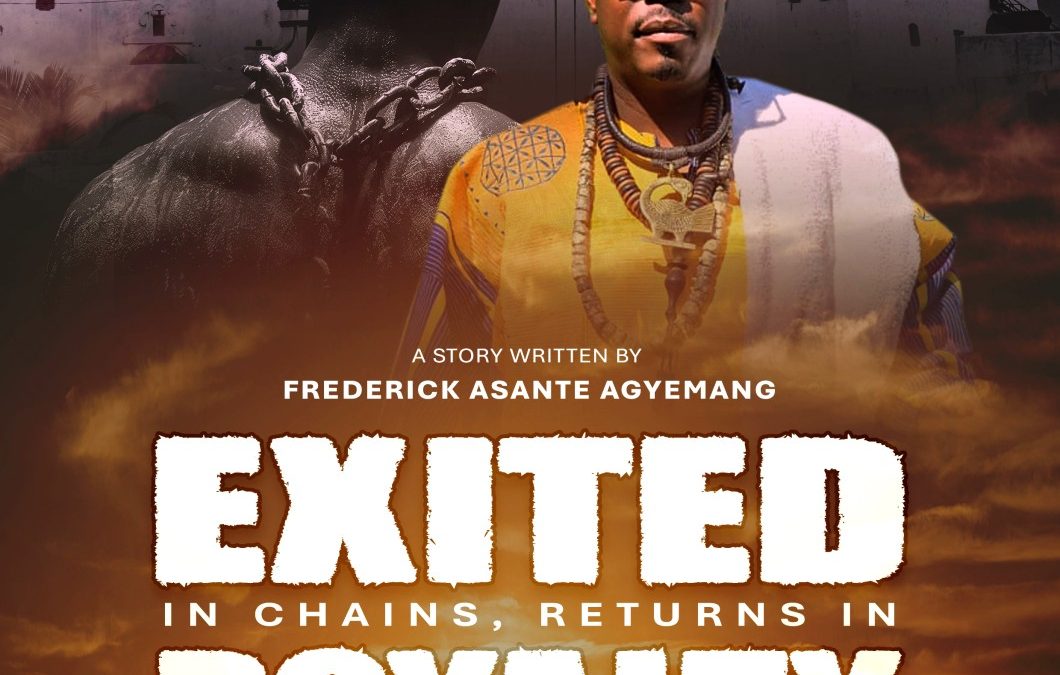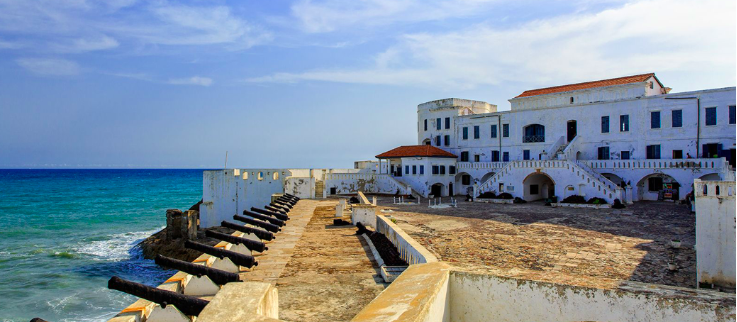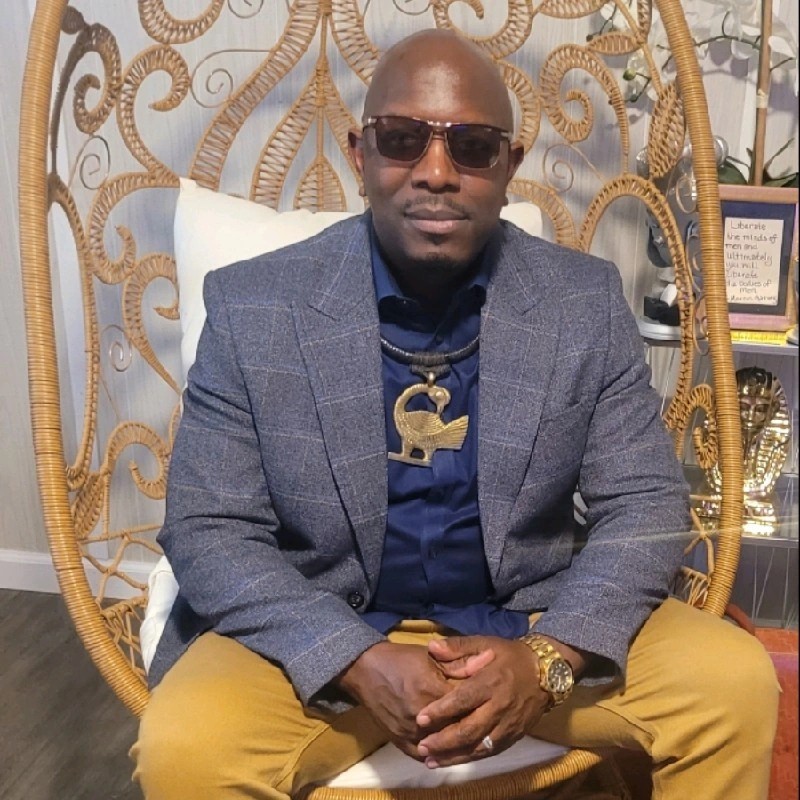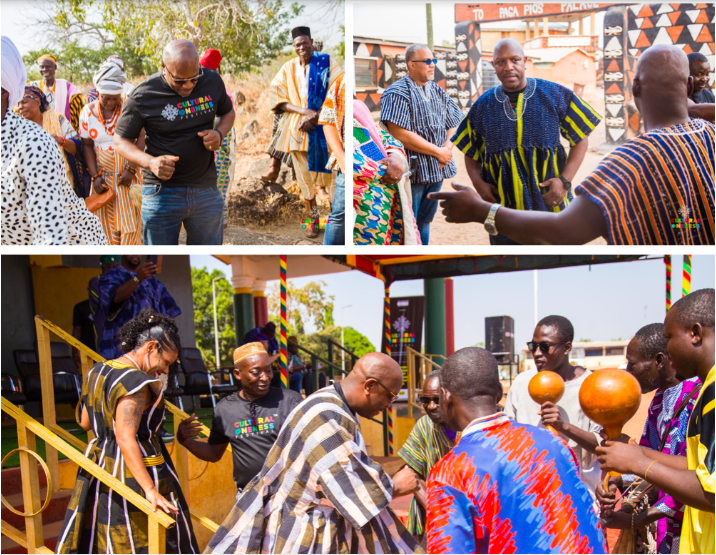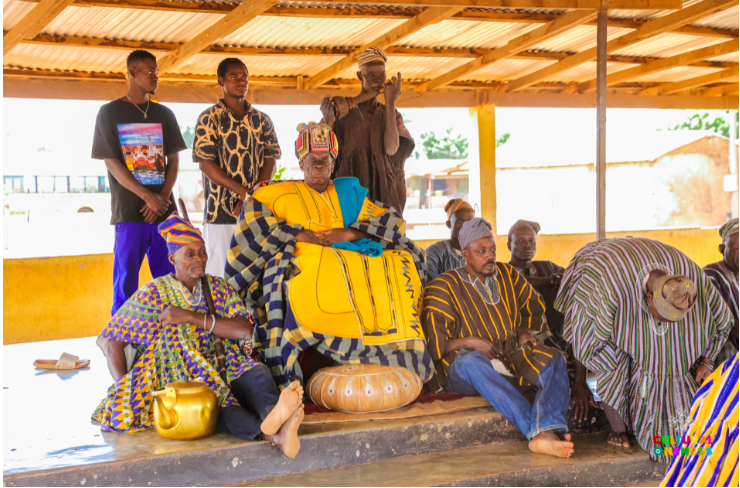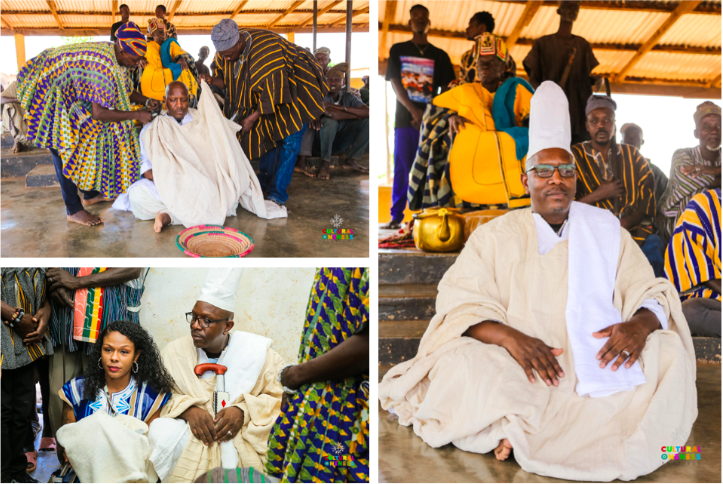The waves crashed against the shores of the castle, whispering secrets carried over centuries. The air was thick with the scent of salt and history, heavy with the echoes of sorrowful cries long silenced.
The Door of No Return stood solemn, its weathered archway a gateway of despair for those who had passed through it generations ago, never to see their homeland again. But tonight, under the glow of the African moon, the tide was shifting.
In the shadows of the castle walls, a lone figure stood still, his breath slow and measured. Chief Martin Chris Glin closed his eyes, feeling the weight of the past press against his chest. He was no longer just Martin, the African American businessman who had built a life in the United States. He was something more—something deeper. A bridge between worlds. A symbol of a journey unfinished, but finally coming full circle.
For centuries, his ancestors had been taken in chains, stripped of their names, their heritage, their very essence. Now, he had returned. Not as a lost soul, not as a stranger, but as royalty. The blood in his veins sang with the rhythm of the land, calling him home. And as he turned away from the Door of No Return, stepping into the embrace of his people, he knew his story was only beginning.
The Awakening
The Call of the Ancestors: A Journey Beyond Borders and Time
Martin Chris Glin had always considered himself a proud African American, deeply rooted in his American identity yet aware of the history that tethered his ancestors to a past beyond the shores of the United States. Living in America, he had built a successful life, thriving in business and community leadership. Yet, despite his accomplishments, there was always an unshakable feeling—an echo of something lost, something incomplete.
It was through a business connection with Tengol Kplemani, a Ghanaian entrepreneur, that Martin first heard about Ghana. Tengol, passionate about reconnecting Africans in the diaspora to their roots, often spoke of the beauty, history, and resilience of his homeland. At first, Martin was indifferent. Africa had never been a part of his immediate plans, and he saw no reason to leave the comfort of what he had always known. But Tengol was persistent. He painted vivid images of the land, its people, and the deep historical ties that connected African Americans to West Africa. Eventually, curiosity got the better of Martin, and he agreed to visit Ghana.
His first steps onto Ghanaian soil were unassuming, yet the air carried an energy he could not explain. As he explored the country, moving from the bustling city of Accra to the tranquil villages in the north, he began to feel an inexplicable connection. It was when he visited the historical slave castles along the coast that the full weight of his ancestry hit him. Walking through the Door of No Return, where millions of his ancestors had been herded onto ships bound for America, he felt a deep sorrow, but also a profound sense of belonging.
His journey took him further north, to the Cultural Oneness Festival, an event organized by The Taste of Afrika, a venture he had co-founded with Tengol. The festival was a vibrant celebration of African heritage, bringing together locals and diasporans to share stories, music, dance, and history.
It was here that Martin encountered the Tolon Naa, the revered chief of the Tolon traditional area. The meeting was unlike anything Martin had ever experienced. The chief and elders welcomed him as a long-lost son of the land. Their words, their gestures, and the warmth in their eyes made Martin feel, for the first time in his life, that he was truly home. After learning about his journey and his connection to Africa’s past, the Tolon Naa bestowed upon him the honorary title of Suŋg Naa . This recognition was not just ceremonial; it was a declaration of his restored lineage, a bridge across centuries of separation.
Martin returned to America with a renewed sense of purpose, but his heart remained in Ghana. He spoke passionately about his experiences, inspiring others in the diaspora to explore their heritage. Soon after, he made the monumental decision to relocate permanently with his wife and children. He returned to Tolon, and underwent the customary rites and was officially enskinned as Suŋg Naa of Tolon.
In a moment of deep honor and acceptance, he was granted land to build his palace, farm, and establish an ancestral home—an initiative to welcome and resettle other diasporans longing to reconnect with their roots.
Martin Chris Glin’s story became a powerful testament to the resilience of a people once taken in chains. The descendants of those who were enslaved, once stripped of their identity, were now returning not as captives but as kings.
Africa is calling, and the sleeping giants of the diaspora are beginning to awaken. Ghana, Northern Ghana, is calling for the return of its sons and daughters—to reunite, to rebuild, and to restore the glory of the motherland. The journey of Suŋg Naa Martin Glin was just the beginning, a beacon for many to follow, as the strongest and richest continent in the world prepared for its grand resurgence.

